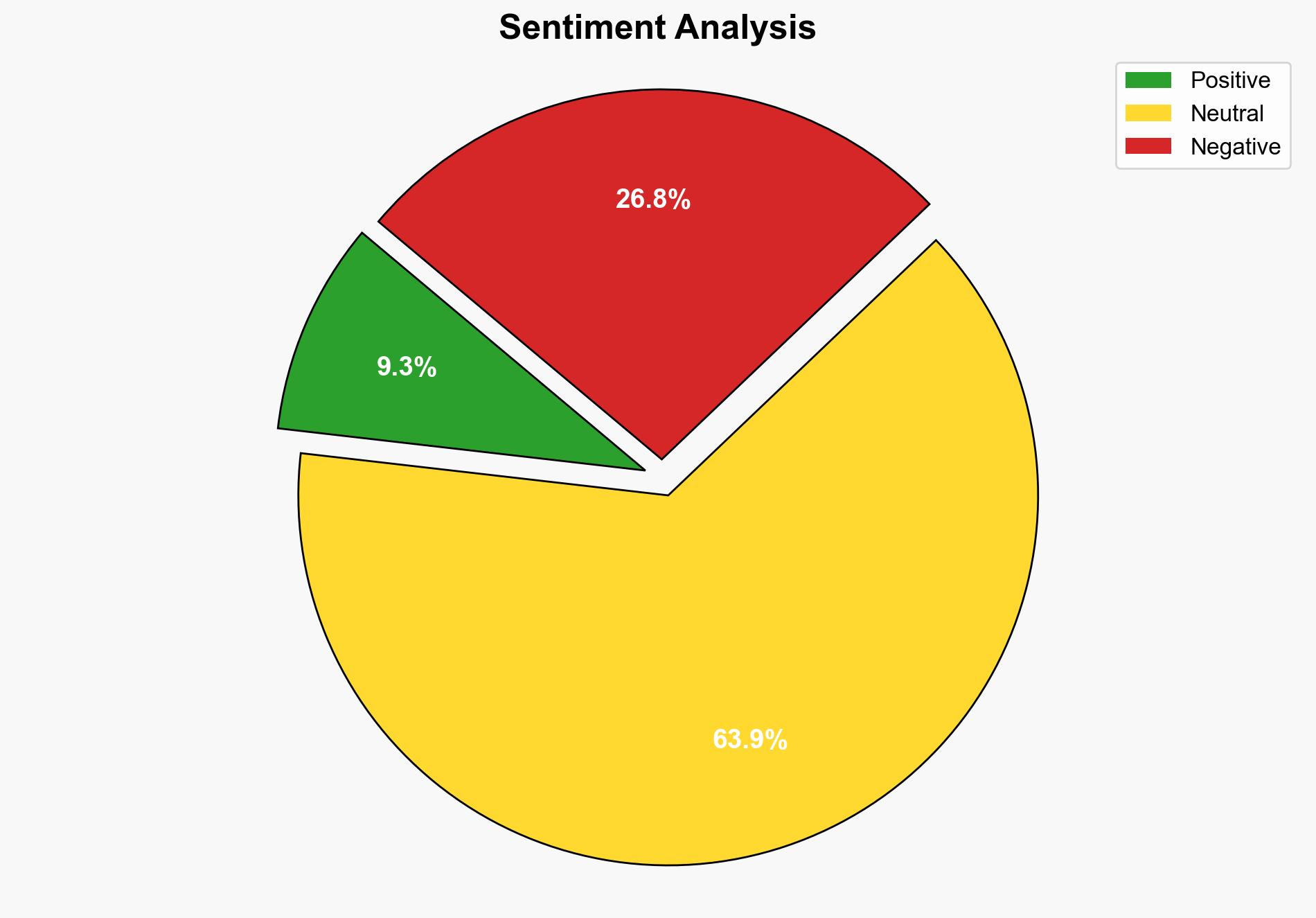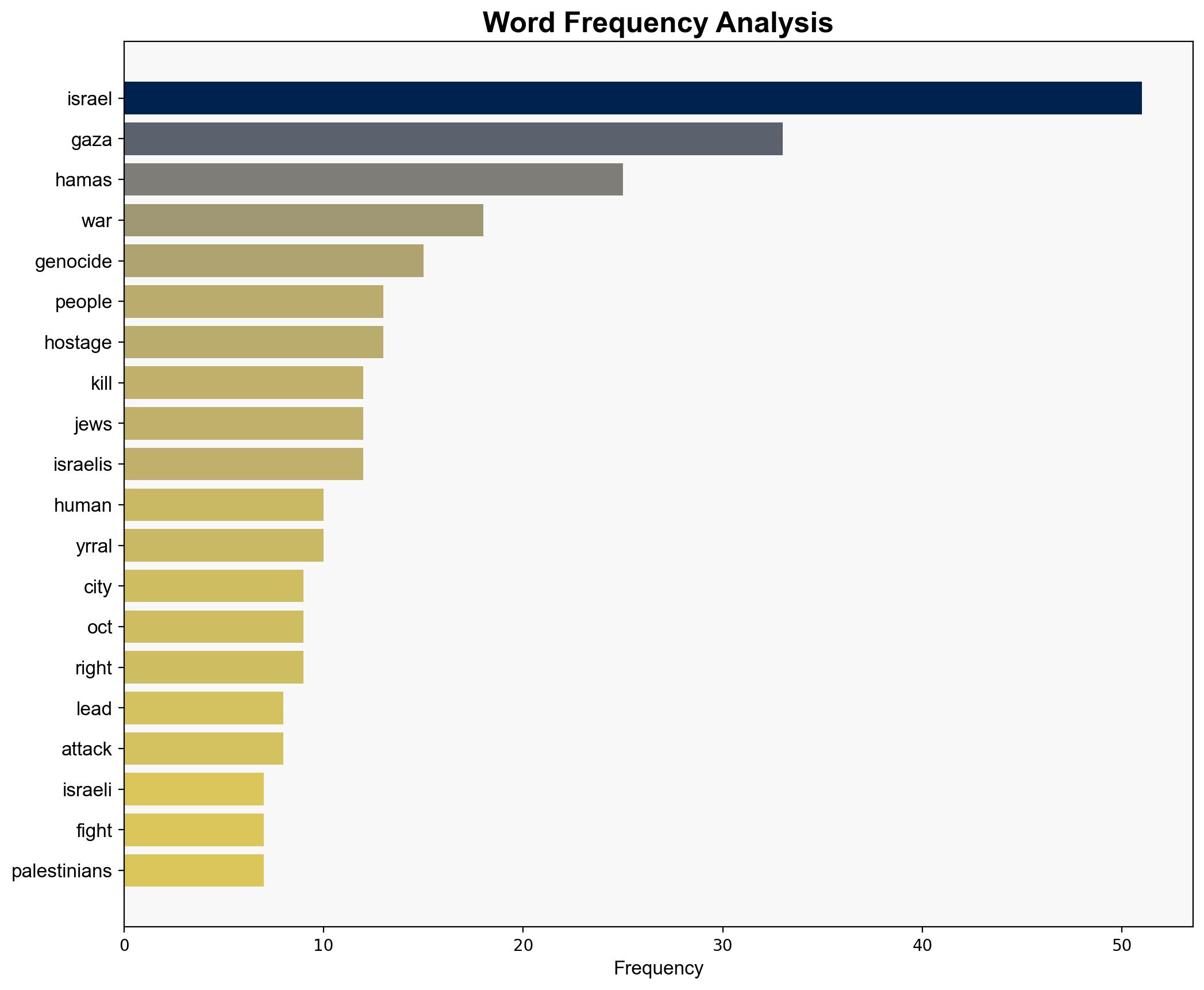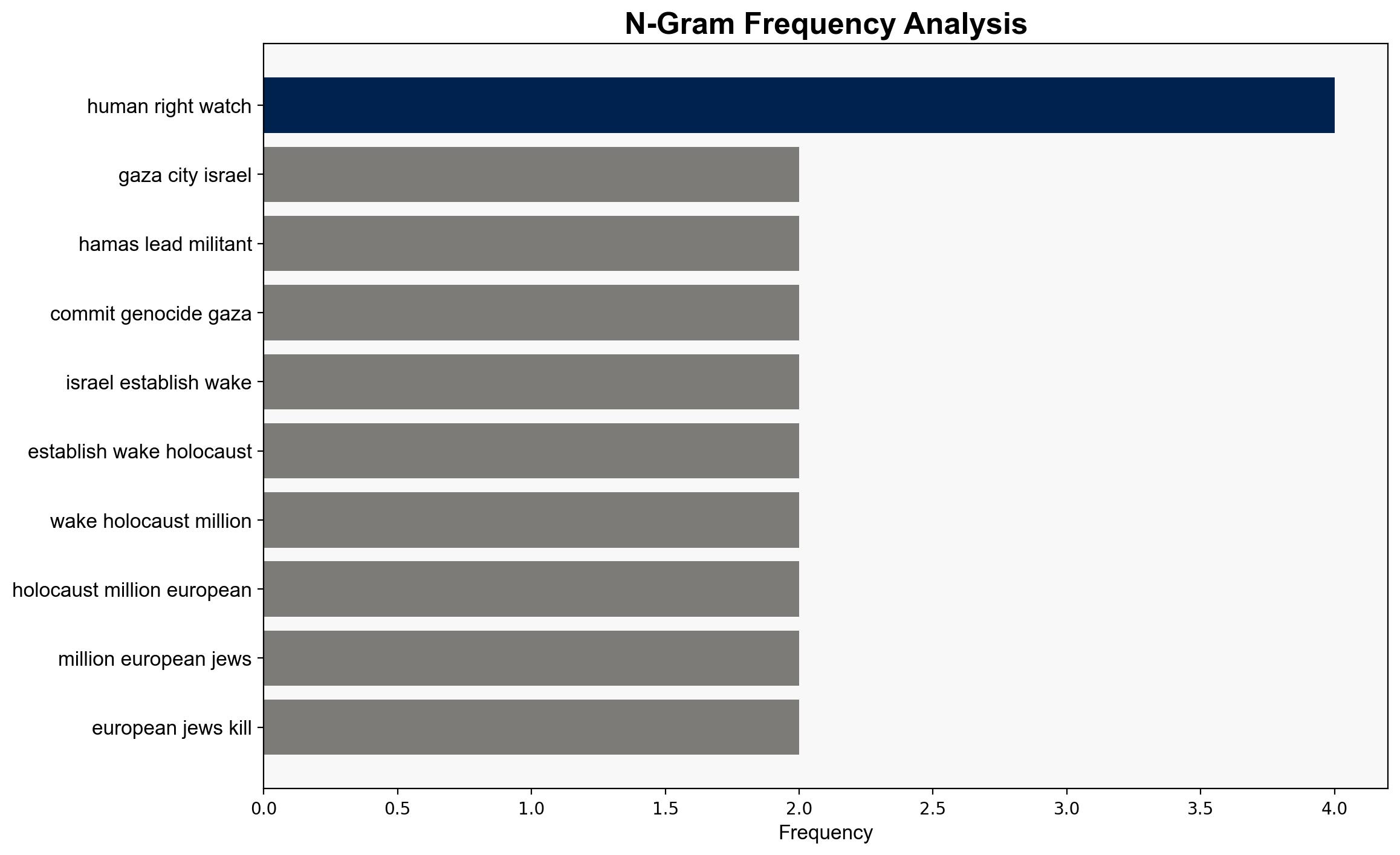Strikes across Gaza kill at least 31 as international scholars accuse Israel of genocide – Japan Today
Published on: 2025-09-01
Intelligence Report: Strikes across Gaza kill at least 31 as international scholars accuse Israel of genocide – Japan Today
1. BLUF (Bottom Line Up Front)
The most supported hypothesis is that Israel’s military actions in Gaza are primarily aimed at neutralizing Hamas militants, despite significant civilian casualties. This conclusion is supported by Israel’s stated objectives and historical patterns of conflict in the region. Confidence level: Moderate. It is recommended to monitor international diplomatic responses and humanitarian impacts to anticipate potential shifts in regional stability.
2. Competing Hypotheses
1. **Hypothesis A**: Israel’s military operations in Gaza are primarily a counter-terrorism measure targeting Hamas militants, with civilian casualties being collateral damage rather than intentional.
– **Supporting Evidence**: Israel’s official statements emphasize targeting Hamas. Historical context shows similar operations aimed at degrading Hamas’ capabilities.
– **Contradictory Evidence**: High civilian casualties and accusations of genocide suggest potential overreach or disregard for civilian safety.
2. **Hypothesis B**: Israel’s actions in Gaza constitute a deliberate strategy that aligns with accusations of genocide, aiming to systematically weaken Palestinian presence and resistance.
– **Supporting Evidence**: Accusations by international scholars and the scale of destruction in civilian areas.
– **Contradictory Evidence**: Israel’s rejection of genocide allegations and measures claimed to minimize civilian harm.
3. Key Assumptions and Red Flags
– **Assumptions**:
– Hypothesis A assumes Israel’s military objectives are primarily defensive.
– Hypothesis B assumes intent behind civilian casualties aligns with genocide definitions.
– **Red Flags**:
– Lack of independent verification of casualty figures.
– Potential bias in reports from both sides.
– Discrepancies in casualty counts and lack of differentiation between combatants and civilians.
4. Implications and Strategic Risks
– **Geopolitical Risks**: Increased international condemnation could lead to sanctions or diplomatic isolation for Israel.
– **Humanitarian Risks**: Escalating civilian casualties may exacerbate the humanitarian crisis, leading to broader regional instability.
– **Escalation Scenarios**: Continued military operations could provoke wider regional conflicts, drawing in neighboring states or non-state actors.
5. Recommendations and Outlook
- Encourage diplomatic engagement to de-escalate tensions and facilitate humanitarian aid access.
- Monitor international responses for shifts in alliances or policy changes.
- Scenario Projections:
– **Best Case**: Ceasefire agreement leading to reduced hostilities and humanitarian relief.
– **Worst Case**: Escalation into broader regional conflict involving multiple state actors.
– **Most Likely**: Prolonged conflict with intermittent ceasefires and ongoing humanitarian challenges.
6. Key Individuals and Entities
– Saeed Abu Elaish: Mentioned as a medic in the conflict zone.
– Melanie O’Brien: President of the International Association of Genocide Scholars.
– Ami Dagan and Ruti Taro: Individuals expressing public sentiment at funerals.
7. Thematic Tags
national security threats, counter-terrorism, regional focus, humanitarian crisis





